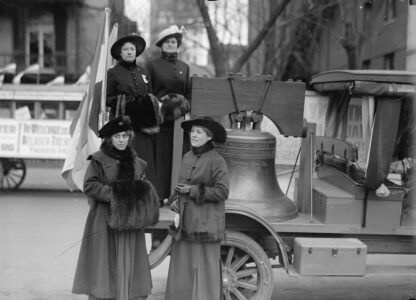Williamsport City Council takes 1st step for term limits
Williamsport City Council approved an ordinance on first reading on term limits for elected officials.
The ordinance that passed on first reading 7-0 Thursday would limit the mayor, treasurer and controller to two, consecutive four-year terms – or eight years. For City Council, it would be three, four-year terms, or 12 years.
As it is currently written, those term limits are three consecutive terms for City Council, no more than two consecutive terms for mayor, no more than two consecutive terms as city treasurer and no more than two consecutive terms as city controller, said Councilman Jon Mackey, who took on the task of researching and writing the ordinance with assistance from Council President Adam Yoder.
Councilwoman Liz Miele recommended that one additional term for council and one additional term for controller and treasurer, but the council did not amend the ordinance to make those changes. It was passed as listed above on first reading.
When Miele noted how council members should be permitted to serve four terms, that evoked a response from Mackey.
“If someone cannot learn the job in 12 years, they probably should not hold the office,” Mackey said.
Mayor Derek Slaughter, who is in his second term, could seek re-election for one more term if the ordinance passes.
Mackey explained the amended ordinance is not designed to stop those running for office or seeking reelection.
“Basically, not stopping seated officials from running again to avoid any type of image or to not create the image that we are trying to stop anybody from seeking future elections,” he said, deferring to city Solicitor Austin White.
White recommended language in the second reading of the ordinance scheduled to take place as early as Oct. 16.
“We have that should we need to amend it,” Yoder said before White described the research done by the solicitor’s office.
“I think that the legality of imposing term limits was something that did go up to the Pennsylvania Supreme Court. I think it was in 1986,” White said. The issue involved the City Council of the City of Bethlehem.
At that time, they were a third class city optional charter city – mayor plan A, White noted. “They passed a two term limit for mayor and the state Supreme Court – in 1986 – said ‘you are allowed to do that.”’
However, there were conditions.
The caveat being, though, in that case the state Supreme Court had indicated that – because the mayor at that time was elected to his first term, after the city had passed the term limits, it was okay to apply to that mayor, that elected official to prohibit that mayor from being elected to a third term.
But the language in the case was such that the state Supreme Court felt that had the City of Bethlehem been trying to stop an incumbent from being elected to a third term a different result would have been reached by the court.
“That is what they said in the opinion, essentially,” White said.
Given that the case is the reason the city is even allowed to have term limits passed, it is the solicitor’s office opinion that there should be added some language to indicate that … this ordinance would not prohibit a present incumbent from being re-elected one time.
It is third class city code, itself, that says the elected officials, the same elected officials for which this ordinance would apply, have the right to be reelected. It says “reelected,” White said.
Based on the Bethlehem case, city council has the right because the city has under the law the strongest form of self governance, which is how the General Assembly put it when they created the optional charter law, “you have the right then to impose how many times they can be reelected,” White said.
“You couldn’t put a one term limit on any office,” he said. That would conflict with the third class city code, which says elected officials are allowed to be reelected, he added.
But, the council, can write an ordinance that says ‘you are only allowed to be reelected once.”
From the solicitor’s office, the recommendation is to put something in the ordinance to cover that. Council would have discretion on the language. White said the council could accept the ordinance in its present form, which doesn’t have such language, and before the next meeting work on a solution to resolve that issue with the ordinance.
That can be changing the language, putting a preamble on the ordinance itself to give it the intent of council and what the intent of the law is – there is a host of different ways council can address it.
Mackey said it was important to note he did not bring up the idea of the ordinance, and did not ask Council President Adam Yoder to help because they wanted to stop anybody from being reelected.
“I think that is important,” Mackey said. “I generally think term limits are important and that is why I am suggesting that we pass a form of this ordinance between now and two weeks from now,” he said.
“If feel the number of terms that we have outlined in this ordinance are the correct number of terms,” Mackey said, adding he said so at the risk of offending some of his colleagues who have served for more than three terms. “It is nothing against any of them,” he said. “I just personally feel that really nobody needs to be on city council for more than 12 years.”
Yoder added from a language-inclusion perspective “that there is a mechanism in here for council to appoint term-limited individuals to fill vacancies.”
“They clearly would not be able to run again but … I am aware of two vacancies in the treasurer’s office,” he said. He said he remembered when Council President Jonathan Williamson resigning and Councilwoman Gerry Fausnaught filling that,” he said.
“Sitting in the chair for six years now I see the benefit of having some experience coming in that could sort of help in a time of a vacancy,” Yoder said. “I think that is valuable and that is written in there as well.”
Miele asked White to clarify about the preamble or language he referred to because she is running for a fifth term, somewhat under duress.
“It would be to allow me to continue to run for that fifth term, and potentially be elected,” she said. “Who else does it impact aside from me?” she asked. “Would it affect the mayor’s next campaign?” she asked.
White said given the time in which the city is at to pass this ordinance, the solicitor is looking at the limitations beyond this election cycle.
“It could not prevent someone who has already filed a petition, is already on the ballot, and is already about to go up for election this November,” he said. “This November it has zero relevance to.”
Moving forward, as it is presently written it would impact mayor, treasurer, controller and Councilwoman Bonnie Katz, the latter who noted no one ran against council members seeking re-election this year.
“If the ordinance is passed, anyone who after the effective date of the ordinance, then wants to run should be – at least based on the solicitor’s office review of the law – able to be reelected at least one more time,” White said.
That is because the third class city code does have that language in it and the city can’t retroactively stop someone by passing legislation mid-term.
Miele noted how one of her primary concerns with this was not her ability to run for office again but if she were looking at this she would want to see the mayor’s office limited to two terms, the controller and treasurer to three and the council to four terms.
“I take that, in part, because it can take a long time to get experience in a part-time position, like a city council position,” Miele said, acknowledging that sometimes she feels she is jaded but also that it has taken her a long time to reach the level of knowledge that she has.
“I think that a four-term arc might be better,” she said. “Note that I am not saying five.”
One of her other fears is a resonate struggle to fill elected officials’ positions – not so much in the city – but within the school board positions.
“I think turnover is a very positive thing in all these positions,” she said. “I also want us to leave some sort of mechanism that if we do not have other people running that we can potentially allow someone to run for reelection who has already hit the end of that term limit.”
The language, as Yoder pointed out, to allow someone to fill out someone’s term is helpful there, she said. She asked White if “theoretically that language could be interpreted to mean that if no one ran for a seat, and council had to appoint someone they can appoint someone who is term limited, correct?”
White said there is presently language in there to allow the appointment.



